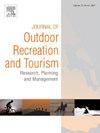冬天来了吗?安大略省西北部和明尼苏达州东北部的户外娱乐志愿协会和脂肪自行车
IF 4.4
3区 管理学
Q1 HOSPITALITY, LEISURE, SPORT & TOURISM
Journal of Outdoor Recreation and Tourism-Research Planning and Management
Pub Date : 2025-09-26
DOI:10.1016/j.jort.2025.100914
引用次数: 0
摘要
户外娱乐志愿协会(orva),如山地自行车协会,在北美小径系统的创建、管理和维护中发挥着至关重要的作用。虽然在过去十年中对orva的研究有所扩大,但研究尚未充分研究气候破坏对orva的影响所带来的挑战,包括对志愿者和活动取消的需求增加,以及对orva协调的小径活动可行性的潜在长期影响。基于在安大略省西北部(NWO)和明尼苏达州东北部(NEM)进行的访谈和调查,本研究旨在1)确定NWO和NEM参与脂肪自行车的程度以及参与这项娱乐活动的人的骑行概况;2)评估他们作为当地orva志愿者的参与程度;3)评估他们未来志愿活动的意愿。4)探索将脂肪自行车纳入区域娱乐产品中作为气候变化适应策略的挑战和机遇。调查结果显示,虽然肥胖的自行车手很欣赏越野跑教练和赛事/比赛协调员的志愿工作,但超过40%的人不太可能成为当地orva的志愿者。现有的ORVA志愿者报告说,在大雪季节,他们的时间需求更高,而且由于缺乏志愿者招募和保留策略,他们会感到精疲力竭。随着气候破坏趋势的持续,山地自行车orva (mb - orva)必须积极应对相关的复杂挑战,通过制定季节性的步道整理和志愿者招募、管理和保留策略,并考虑轮流共同主持合作自行车活动,以确保提供安全、整洁的步道,并定期举办活动。支持区域冬季脂肪自行车参与的持续发展和增长。通过强调脂肪自行车如何被用来提供全年的越野骑行机会,本研究扩展了目前对美国和加拿大山地自行车户外娱乐志愿协会(MB-ORVAs)的理解。mb - orva必须积极应对与气候破坏以及对志愿美容师和行政能力的需求增加相关的挑战。MB-ORVAs应该:•在提供的娱乐环境中,持续评估肥胖骑行者对自然资源条件的感知(例如,雪量、降雪频率和严重程度、积雪深度等),以及肥胖骑行者和其他户外骑行者在面对次优条件时采用的个体适应策略;•评估肥胖骑行者对自然资源条件和气候破坏严重程度的看法对他们自愿参加小径整理和活动主办活动的意愿的影响;•开发一项两国/两年一次的脂肪自行车活动,以分配主办责任,减少志愿者和当地MB-ORVA资源的压力,并提供一个平台,展示两个地区现有和新兴的脂肪自行车路线;•制定并实施年度志愿者参与和情绪调查,以征求主动和被动ORVA成员对志愿者工作量、志愿者情绪和志愿者经历的反馈;•实施志愿者招募和保留策略,包括建立志愿者认可计划,制定有针对性的志愿者招募和保留计划,并聘请专门的志愿者协调员来领导这些举措。采用这些策略将使mb - orva在NWO和NEM以及其他受气候破坏影响的地区定位,提供高质量的冬季娱乐体验,包括安全、整洁的小径和定期举办的活动。本文章由计算机程序翻译,如有差异,请以英文原文为准。
Is winter coming? Outdoor recreation voluntary associations and fat biking in Northwestern Ontario and Northeastern Minnesota
Outdoor recreation voluntary associations (ORVAs) such as mountain biking associations play vital roles in the creation, management, and upkeep of trail systems in North America. While research on ORVAs has expanded in the last decade, studies have not sufficiently examined the challenges presented by the impacts of climate disruption on ORVAs, including increased demands on volunteers and event cancellations, nor the potential long-term impacts on the viability of trail-based activities coordinated by ORVAs. Based on interviews and surveys conducted in Northwestern Ontario (NWO) and Northeastern Minnesota (NEM), this study aimed to 1) ascertain the extent of fat biking participation in NWO and NEM and the ridership profiles of those engaged in this recreational activity, 2) assess their levels of engagement as volunteers within local ORVAs, 3) assess their willingness to volunteer in the future, and 4) explore the challenges and opportunities associated with the inclusion of fat biking as a climate change adaptive strategy within regional recreation offerings. Findings revealed that while fat bikers appreciated the volunteer efforts of trail groomers and event/race coordinators more than forty percent were unlikely to volunteer with local ORVAs. Existing ORVA volunteers reported higher demands on their time during heavy snow seasons, as well as burnout associated with a lack of volunteer recruitment and retention strategies. With climate disruption trends expected to continue, Mountain Biking ORVAs (MB-ORVAs) must proactively manage associated and compounded challenges by developing seasonal trail grooming and volunteer recruitment, management, and retention strategies and should consider rotating co-hosting duties for collaborative fat bike events to ensure the provision of safe and well-groomed trails, and regularly occurring events, which support the continued development and growth of regional winter fat biking engagement.
Statement of management implications
By highlighting how fat biking is employed to provide year-round trail riding opportunities, this study expands on current understandings of Mountain Biking Outdoor Recreation Voluntary Associations (MB-ORVAs) in the U.S. and Canada. MB-ORVAs must proactively manage the challenges associated with climate disruptions and the increased demand placed on volunteer groomers and administrative capacities. MB-ORVAs should:
- •Continually assess fat bikers' perceptions of natural resource conditions (e.g., snow volume, frequency and severity of snow fall, depth of snowpack, etc.) within provided recreation settings, and the individual adaptive strategies fat bikers and other outdoor recreationists employ when faced with suboptimal conditions;
- •Assess the impact of fat bikers' perceptions of natural resource conditions and the severity of climate disruptions on their willingness to volunteer for trail grooming and event hosting initiatives;
- •Develop a binational/biannual fat biking event to distribute hosting responsibilities, reduce strain on volunteers and local MB-ORVA resources, and provide a platform to showcase existing and emerging fat biking trails in both regions;
- •Develop and implement an annual volunteer engagement and sentiment survey to solicit feedback on perceived volunteer workload, sentiment towards volunteering, and experiences of volunteering from both active and passive ORVA members; and,
- •Implement volunteer recruitment and retention strategies, including establishing a volunteer recognition program, developing targeted volunteer recruitment and retention plans, and hiring a dedicated volunteer coordinator to lead these initiatives.
Adopting these strategies will position MB-ORVAs in NWO and NEM, and other regions impacted by climate disruptions, to deliver high-quality winter recreational experiences, including safe, well-groomed trails, and regularly occurring events.
求助全文
通过发布文献求助,成功后即可免费获取论文全文。
去求助
来源期刊

Journal of Outdoor Recreation and Tourism-Research Planning and Management
HOSPITALITY, LEISURE, SPORT & TOURISM-
CiteScore
6.70
自引率
5.30%
发文量
84
期刊介绍:
Journal of Outdoor Recreation and Tourism offers a dedicated outlet for research relevant to social sciences and natural resources. The journal publishes peer reviewed original research on all aspects of outdoor recreation planning and management, covering the entire spectrum of settings from wilderness to urban outdoor recreation opportunities. It also focuses on new products and findings in nature based tourism and park management. JORT is an interdisciplinary and transdisciplinary journal, articles may focus on any aspect of theory, method, or concept of outdoor recreation research, planning or management, and interdisciplinary work is especially welcome, and may be of a theoretical and/or a case study nature. Depending on the topic of investigation, articles may be positioned within one academic discipline, or draw from several disciplines in an integrative manner, with overarching relevance to social sciences and natural resources. JORT is international in scope and attracts scholars from all reaches of the world to facilitate the exchange of ideas. As such, the journal enhances understanding of scientific knowledge, empirical results, and practitioners'' needs. Therefore in JORT each article is accompanied by an executive summary, written by the editors or authors, highlighting the planning and management relevant aspects of the article.
 求助内容:
求助内容: 应助结果提醒方式:
应助结果提醒方式:


